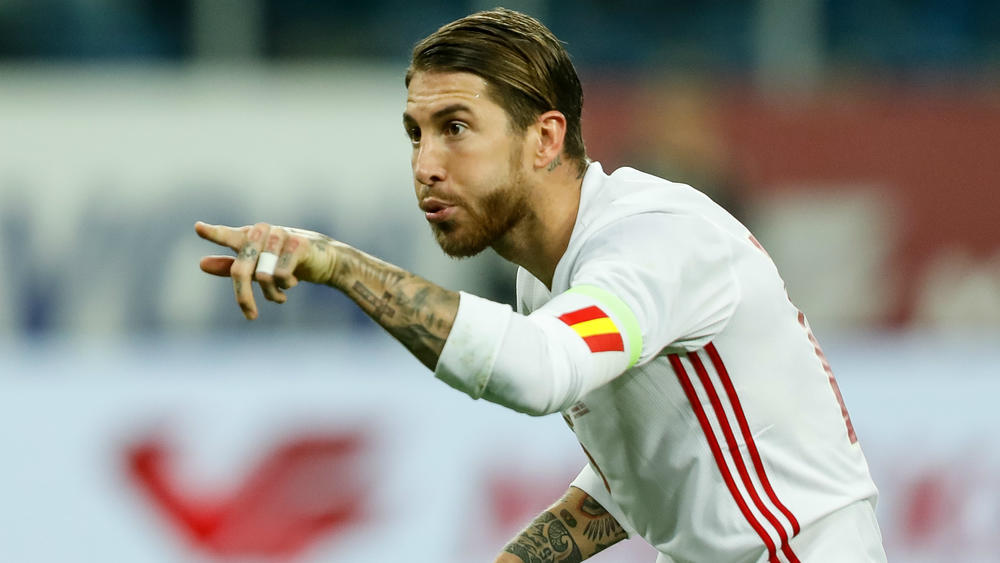Spain need spirit of 2008 to survive Lopetegui chaos
With Spain having sacked Julen Lopetegui on the eve of the tournament, they are staring at a second nightmare World Cup in a row.

It's unusual to see Sergio Ramos, the pantomime villain of the Champions League final, act as a firefighter but, hours after Julen Lopetegui was sacked as Spain coach, the centre-back was a voice of calm amid the chaos.
"We're the national team, we represent a badge, colours, fans, a country," he tweeted. "Yesterday, today and tomorrow: together."
The tone was right, the message of solidarity important. But it felt like a man politely asking a storm not to blow down his house while the flood waters reached his shoulders.
Lopetegui's dismissal was as momentous as it was horrendously ill-timed. Announced as Real Madrid's next coach on Tuesday, he did not even see out the following 24 hours with his national team.
Royal Spanish Football Federation president Luis Rubiales made sure of that, flying from Moscow to Krasnodar to swing the axe despite a reported two-hour meeting with senior players, who pleaded for a stay of execution.
Ramos was among them, it is said. He's been here before. The defender, along with Andres Iniesta, Pepe Reina and David Silva, is a surviving member of the Euro 2008-winning squad, a group of players who ended Spain's long wait for a trophy despite coach Luis Aragones having been announced as the next Fenerbahce boss during the tournament.
Aragones did take over in Istanbul but only after Spain's triumph, so the argument that Lopetegui had to go for the sake of La Roja's ambitions in Russia simply does not hold water.
Get FourFourTwo Newsletter
The best features, fun and footballing quizzes, straight to your inbox every week.
The former Porto coach has spent the best part of two years cultivating a squad with experienced heads and younger talents he knows well from the youth set-up.
Would he really have lost focus on his shot at international glory, when Madrid do not play a competitive match for another two months?
29 - Julen Lopetegui has been sacked only 29 hours before the start of the 2018 World Cup He has never lost in 20 games in charge of the National team14 wins 6 draws Thunderclap. June 13, 2018
Others might claim his new club deal would cause a rift among the players, specifically those from Madrid and Barcelona. Members of this Spain side, Ramos included, survived the fiercest Clasico rivalry in years to win back-to-back European Championships and the World Cup in 2010. In-fighting could not derail those campaigns, so why would this year be any different?
It feels like this was Rubiales' call, perhaps even his alone. He surrendered his vote for the 2026 World Cup hosting rights at the Moscow FIFA Congress to fly more than 1,300 kilometres to Spain's Krasnodar base in order to confront Lopetegui. A shock announcement seemed necessary to justify the expense.
At a delayed news conference, Rubiales spoke of how there are more important things than winning, "such as your way of working", hinting at a seething anger at not being informed about Madrid's discussions with his coach. "The federation cannot be left outside the negotiation of one of its employees and find out five minutes before a public announcement," he said. "That can't happen."
There was an undeniable bitterness, a sense even of betrayal, with Lopetegui having signed a new two-year contract less than three weeks ago. There is also a feeling of Rubiales looking to stamp his authority on a position he has held for barely a month, by taking to task a man 11 years his senior for his conduct.
The concern is that he could have dealt the very sort of damage he has tried to avoid. He has dismissed a coach apparently against the will of a number of players, turned Madrid – Spain's most powerful and popular club – into public enemies of the national team and severed the head of a cohesive outfit who looked primed to challenge for the trophy, four years on from a humbling group-stage exit.
Placing Fernando Hierro in charge, a Spain great who commands respect from the players, seems a perversely sensible stop-gap. In fact, Hierro ironically boasts the very quality Lopetegui will need at Madrid, namely the tact to get a volatile dressing-room pulling in the same direction.
Trouble is, he has 48 hours to do just that, to save Spain from a second nightmare World Cup start in succession. Succeeding Zinedine Zidane at the Santiago Bernabeu looks a breeze by comparison.
